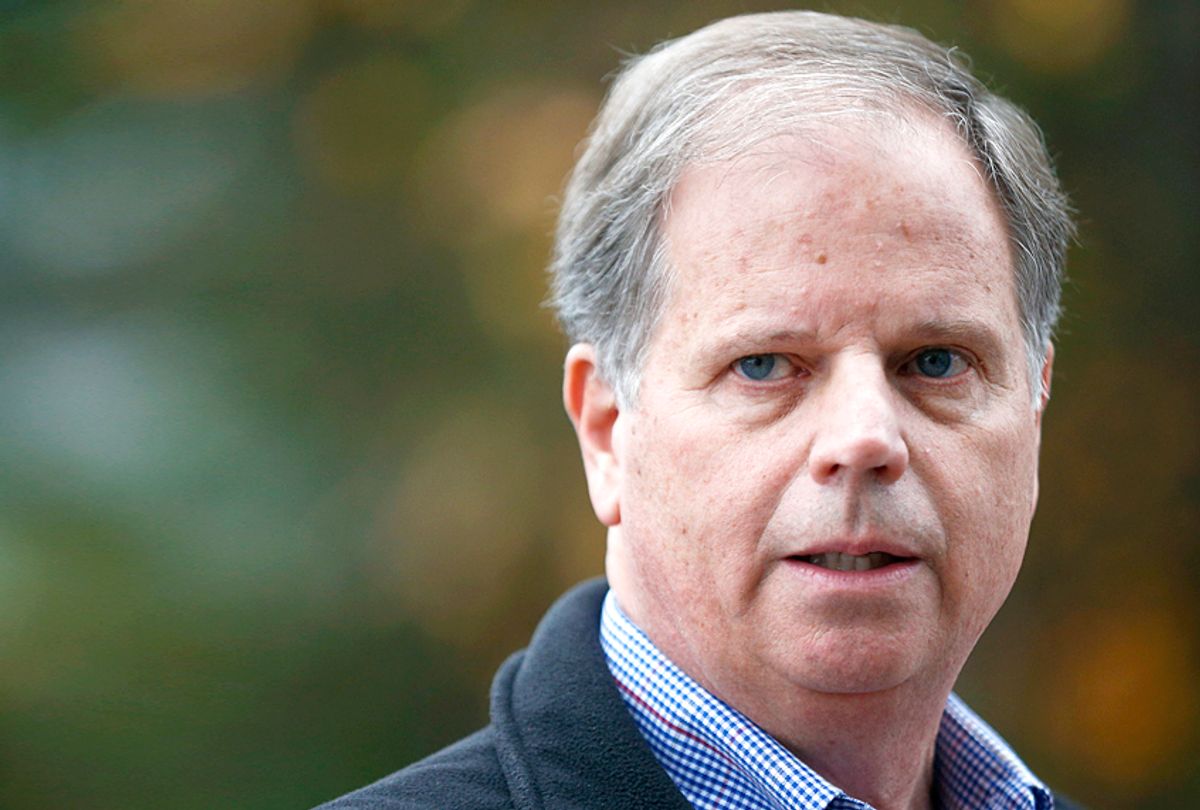In December, Democrat Doug Jones defeated Republican Roy Moore in an upset triumph during the 2017 Alabama Senate special election. Although Alabama Republicans may not be able to reverse Jones' victory, they are trying to do the next best thing for their purposes — making sure special elections for the United States Senate never happen again in their state.
On Tuesday evening, the Alabama House of Representatives passed a bill that would have individuals appointed to fill vacated Senate seats serve until the next scheduled general election, according to the Montgomery Advertiser. The measure passed in the lower legislative body by a mostly party-line vote, after Democrats were unable to stave it off with a two-hour filibuster.
"This bill certainly has nothing to do with the personalities in that race. It has everything to do with the cost to the General Fund," Rep. Steve Clouse, R-Ozark, told reporters. He argued that the goal was to save the state money, since the 2017 special election had cost local taxpayers $11 million. The bill will now move to the State Senate.
Even before the recent House measure, the Alabama special election process had been the source of controversy. After the Senate seat was vacated when President Donald Trump appointed Jeff Sessions to be his attorney general, then-Gov. Robert Bentley scheduled the next election for November 2018. Democrats complained that this wasn't quick enough, in accordance with state law, and after Bentley resigned due to unrelated scandals, his successor, Gov. Kay Ivey, rescheduled the special election for December 2017.
Jones' victory has prompted many analysts to predict a bad year for Republicans in the upcoming 2018 midterm elections. It has also drawn attention to the seemingly unlikely nature of Jones' ability to win in a deeply conservative state.
"I think from a national perspective he would be considered a centrist," John Archibald, a columnist for AL.com, told Salon Talks in December. "I think from an Alabama perspective he would be considered, I was gonna say liberal, but he would probably be considered a radical."



Shares